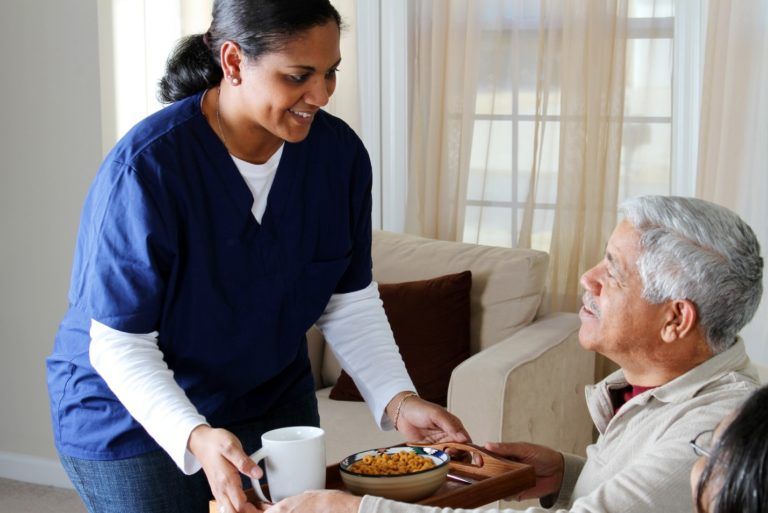Winter Home Safety for the Elderly
The shorter days and dropping temperatures of winter drive people indoors partially out of comfort, but many times for safety’s sake as well. The Centers for Disease Control and Prevention (1) point out that spending more time inside during the winter is no guarantee for safety. Connecticut in Home Assistance recommends that you take advantage of the time you spend indoors this winter by inspecting things around your house, indoors and out, to ensure your safety and health during harsh winter weather.
Indoors
Rugs and mats capture water and snow tracked in on winter boots, but rugs placed on uncarpeted surfaces can slide around, creating a safety hazard. If your rugs do not have a non-slip backing, place double-stick carpet tape to the underside of the rugs, and re-check and replace the tape periodically to make sure it remains effective. Also, tack down loose carpeting on stairways as that, too, can cause a fall. Make sure you have a minimum of one smoke detector on each floor of your house. The North Carolina Extension Service recommends that they are placed in hallways and/or near bedrooms. (2) Telephone, electrical and extension cords can be tripping hazards any time of the year, but extra cords run everywhere during winter holidays. Arrange cords along walls and out of high-traffic areas. Avoid running them under rugs or furniture as that creates a fire hazard. Do not overload extension cords with too much wattage, and do not use cords that are frayed or damaged in any way.
Outdoors
With daylight hours at a minimum during the winter, the outside areas of your home should be well-lit so you can see to walk through them, but also to discourage intruders. This includes walkways, porches, steps, doorways and driveways. Do some maintenance on handrails to make certain that they are sturdy. De-icing can be a tricky issue. There are a number of de-icing products on the market for keeping your porch, walkways and driveways clear of ice and snow during the winter, but many of them damage concrete, causing it to spall and chip. Many people simply use rock salt because it melts ice and snow and provides traction on melting icy patches. However, salt is one of the top offenders for damaging concrete. If you would prefer to use a product that will not harm your sidewalks and driveway, sand or cat box litter will provide traction, although neither will melt ice and snow. Another “safe” solution is pouring a mixture of vinegar and water onto ice in a 75/25 percent ratio. The University of Missouri Outreach and Extension (4) reveals that the acetic acid in the vinegar is used in commercial de-icers and is not dangerous to animals, your lawn or plants that may be near the areas you need to deice.
On the Road
Have your car serviced to prepare it for use during cold weather. Have the anti-freeze level checked the tread on your tires, too. Do not let the gas tank empty past half-way, as a fuller tank will keep ice from forming in the fuel lines. Keep a first aid kit, jumper cables, blankets, food and water in the trunk in case of emergency. It is understandable if you prefer not to drive when the weather is cold and the roads are icy. Connecticut In Home Assistance has a transportation service that can take you to and from doctor’s appointments, grocery shopping or on any errand you need to run. Connecticut In Home Assistance even carries additional automobile insurance, so that the Companions and Caregivers can drive your car if you prefer using your own transportation.
Sources: (1) http://www.cdc.gov/Features/WinterWeather/ (2) http://www.ces.ncsu.edu/depts/fcs/pdfs/FCS-461.pdf (3) http://www.ehow.com/how_7561158_prevent-ice-windshield-vinegar.html (4) http://extension.missouri.edu/webster/ag-edge/safety-home/deicers.html
The post Winter Home Safety for the Elderly appeared first on .
Related Posts


Request More Information
Contact Us
We will get back to you as soon as possible.
Please try again later.
Call (855) 412-2273 Today for a Free on Site Assessment!
Give Us A Call!
Call 855-412-2273 today for a Free on Site Assessment
Offices in Stratford, Hamden, Hartford, and Stamford

